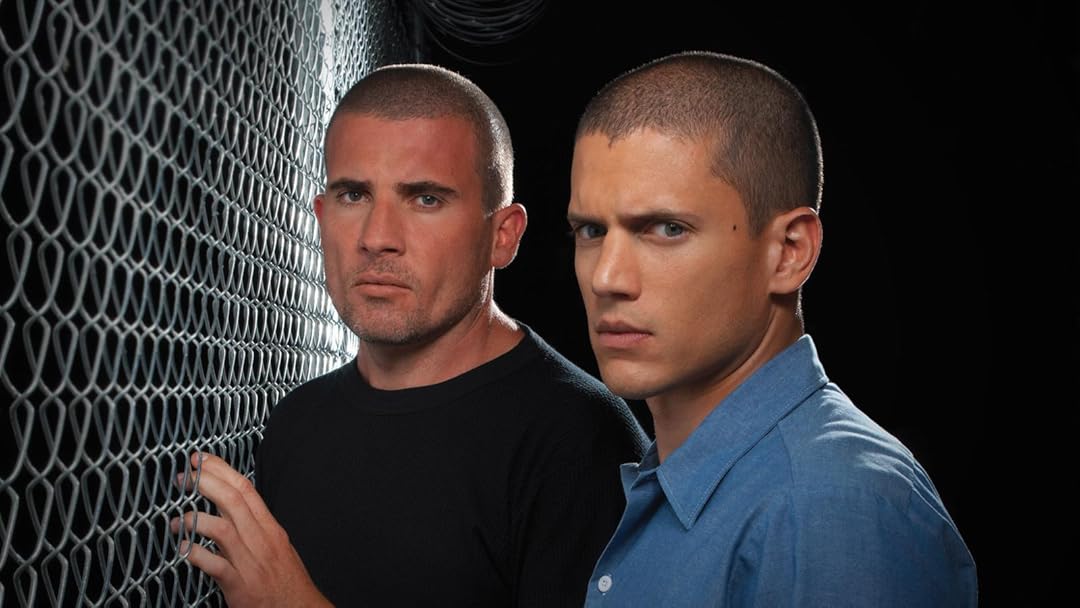Few could have predicted the huge impact that Prison Break would have on television viewers worldwide when it debuted in 2005. With its engaging plot, well-developed characters, and intense suspense, the show quickly exceeded television and became an international hit. Prison Break continues to have a special place in the hearts of its fans nearly twenty years after it debuted, demonstrating that its impact is still as relevant today as it was then.
In Prison Break, an unusual story of brotherly love lies at its core. Wentworth Miller’s character, Michael Scofield, purposefully gets himself locked up in order to free his older brother, Lincoln Burrows (Dominic Purcell), from death row. It’s a simple but brilliant notion. Lincoln is accused of a crime he did not commit, and Michael is responsible for his fate. This sets up one of the most suspenseful stories on television.
The first season is a suspenseful masterpiece, with nearly all the action taking place inside Fox River State Penitentiary. With every episode, the suspense increases as Michael’s complicated escape plan is gradually made public. The elaborate structure of the escape plot and the way it depicts the difficulties of prison life are the two main elements of Prison Break’s genius. Each character in Fox River had a backstory, and the supporting cast—which included standout performances by Robert Knepper’s Theodore “T-Bag” Bagwell and Peter Stormare’s John Abruzzi—brought depth to the series’ setting, elevating it above a straightforward escape plot.
Prison Break’s seamless mix of action, emotion, and intelligence set it apart from its contemporaries. The show’s ability to hold viewers’ attention extended beyond prison breaks and fast-paced chases. Relationships were the main focus instead, especially the close but occasionally unstable bond between Michael and Lincoln. Fans were drawn in by Miller and Purcell’s genuine portrayal of their friendship. We were cheering for the boys because we cared about them, even though some of the narrative twists looked unbelievable.
However, Prison Break was more than a two-brother story. It was a program about perseverance, loyalty, and battling corrupt structures. In an otherwise dark and oppressive society, Michael’s brilliance—his ability to perceive possibilities where others see dead ends—became a symbol of hope. Every time the odds appeared insurmountable, audiences were given hope by Michael’s unwavering perseverance.
Fans were kept on the edge of their seats as the show moved through five seasons and multiple plot arcs, from Fox River’s breakout to the larger conspiracies involving government corruption and hidden organizations. Prison Break never lost its core value as a drama about escape, literally and figuratively.
Of course, discussing Prison Break without bringing up Wentworth Miller’s extraordinary talent would be impossible. The series’ emotional core was his portrayal of Michael Scofield, a man tormented by both talent and moral dilemma. Miller’s ability to portray the importance of Michael’s sacrifices and his quiet intensity won him praise from critics, making Michael one of TV’s most enduring heroes.
In perspective, Prison Break’s continuing popularity can be ascribed to its boldness. It didn’t hesitate to push limits, invent impossible situations, or force its characters to deal with the consequences of their choices. In a pool of crime dramas of its age, the show stood out for its ability to combine high-stakes action with vulnerable moments.
The return of Prison Break for a fifth season in 2017 was evidence of the show’s enduring popularity. Although the return wasn’t flawless, it served as a reminder of the show’s heart, suspense, and unwavering quest for freedom—the reasons why fans had been demanding more of the Scofield-Burrows drama.
Prison Break continues to be an excellent example of how a skillfully written narrative with a strong human connection can go beyond the tiny screen as television continues to change. It was more than just getting out of jail; it was about getting out of the things that keep us back, whether they be structural, mental, or physical. And people will always find resonance in that idea.
Even if Prison Break is over, its legacy lives on. It stands tall as a reminder of the strength of brotherhood and the power of narrative in a world where shows come and go.










